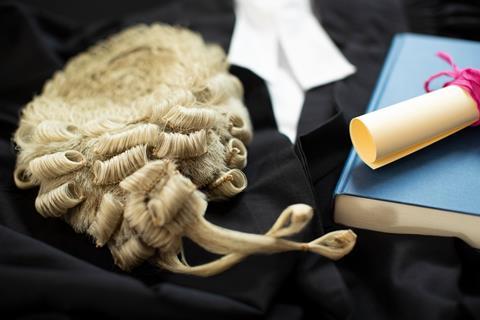I was once running the line at a football match and fell asleep with the flag in my hand. It had been a long night, with a newborn baby, and I nodded off, only to be woken when someone shouted for offside and I instinctively raised the flag. It must have been right, as no-one seemed to argue.
There are any number of reasons why someone might fall asleep, especially during an online hearing full of detailed and painstaking testimony.
We don’t know exactly why barrister Ramya Nagesh fell asleep during a coroner’s inquest virtual hearing in December 2022. But we do know that Nagesh – who has an unblemished record and is accomplished enough to have worked on the Grenfell inquiry and Hillsborough inquest – was subject to the full force of the Bar Standards Board, which charged her with professional misconduct.
Her case was reportedly thrown out by a disciplinary tribunal this week, with one judge on the five-person panel describing it as ‘very troubling’ that the BSB pursued the case without considering Nagesh’s explanation that she suffered from fatigue and excessive sleepiness caused by various medical conditions.
What exactly was the BSB hoping to achieve through hauling Nagesh through disciplinary proceedings? Was it to act as a deterrent? Can a regulator actually deter people who patently do not want to fall asleep from doing so?
Was it simply to punish Nagesh? Did this barrister really need to be dragged through a tribunal and made subject to the inevitable media frenzy (hers was in the best-read stories in the Guardian on the day it broke)?

Perhaps she should have said she was struggling and sought an adjournment. But who reading this has not worked through exhaustion and sought to keep going regardless? And do we really think many judges would agree to postpone proceedings because one of the advocates was too tired? Rather than Nagesh facing judgement, perhaps we should be putting on trial a legal process which requires people to work no matter what and offers little respite to those who admit they cannot continue.
It may be that such a draconian approach may even encourage misconduct. Cameras appeared to be off during the hearing in question, and in similar circumstances it could be that someone else who had fallen asleep might lie to cover their lapse.
There is an irony as well in the BSB alleging that Nagesh ‘conducted herself in a way which was likely to diminish the trust and confidence which the public places in her or in the profession’. This matter could have been dealt with through a stern reminder of a barrister’s duties and empathetic advice to seek help if matters were getting too much.
Instead the BSB subjected her – and by extension her profession – to public ridicule and derision. Just remind me who exactly was diminishing confidence in the legal profession here?
And let’s not forget the great gaping double standards with how lawyers are treated compared with judges. There have been a few examples of judges falling asleep during trials in recent years and none has resulted in a sanction of any note. Usually the response is to issue ‘formal advice’ following an investigation which is kept private. The lack of candour is such that we don’t even get to learn what the advice consists of.
As many have pointed out this week, people fall asleep during hearings. Lawyers, jurors, court clerks, judges. It is unfortunate but understandable. To prosecute this barrister without appearing to take account of wider issues was overblown and unfair. Sleeping on the job is regrettable, but it doesn’t have to be a disciplinary issue.




































3 Readers' comments